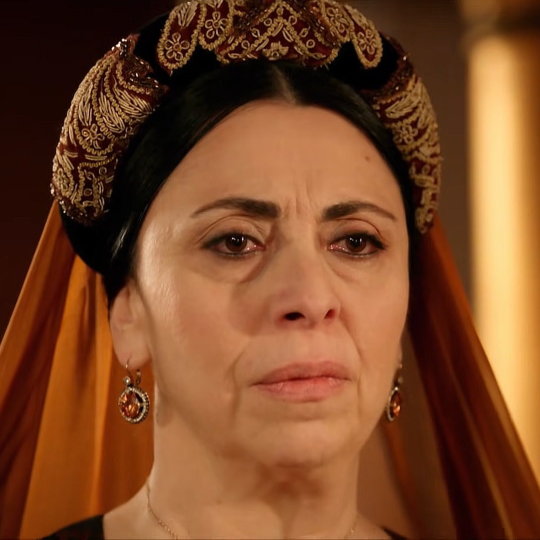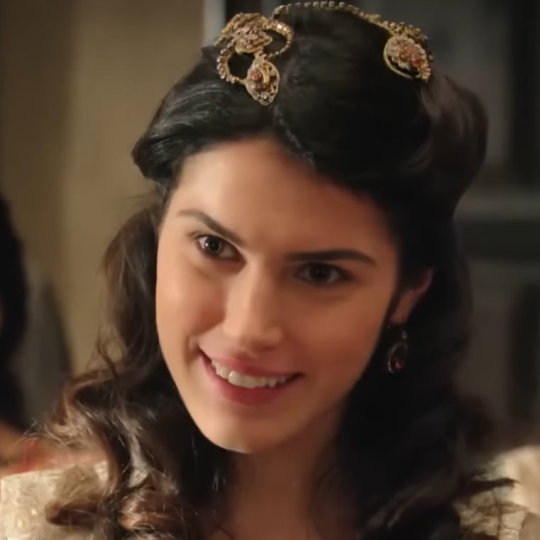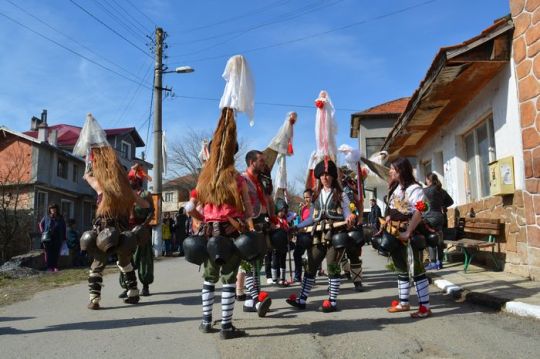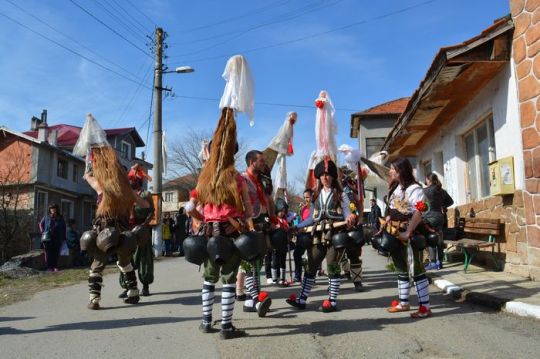#mustafa iii
Explore tagged Tumblr posts
Text







These orange earrings were first worn by Princess Isabella Fortuna in the seventh episode of the second season of Magnificent Century. They are worn again by Daye Hatun in the twenty-fourth episode of the same season. The earrings make further appearances on Nurbahar Hatun in the sixth episode and Ayşe Hatun in the twenty-first episode of the third season. The earrings are used twice in the fourth season. First on Nurbanu Sultan in the fourth episode and then on Hürrem Sultan in the eleventh episode.
The earrings are also worn by Safiye Sultan in the seventh episode of the first season of the spin-off Magnificent Century: Kösem.
#Muhteşem Yüzyıl#Muhteşem Yüzyıl: Kösem#Magnificent Century#Magnificent Century Kösem#Magnificent Century Kosem#period drama#costume drama#historical drama#Isabella Fortuna#Daye Hatun#Nurbahar Hatun#Ayşe Hatun#Ayse Hatun#Ayşe Hatun (Harem of Şehzade Mustafa)#Nurbanu Sultan#Hürrem Sultan#Hurrem Sultan#Safiye Sultan#Safiye Sultan (Harem of Murad III)#reused jewellery#recycled jewellery
20 notes
·
View notes
Text
Masyarakat Menanti Uji Nyali Empat Legislator Muda Dapil III Pamekasan
PAMEKASAN, MaduraPost – Empat legislator muda yang baru saja dilantik sebagai anggota DPRD Pamekasan dari Daerah Pemilihan (Dapil) III, mencakup Kecamatan Pasean, Waru, dan Batumarmar, kini menjadi sorotan publik. Masyarakat setempat dengan penuh harap menunggu kiprah dan kerja nyata dari keempat wakil rakyat ini yang siap menghadapi berbagai tantangan dalam dunia politik yang dinamis. Empat…
#Abd Rosid#Batumarmar#Dapil III#DPRD Pamekasan#Kiprah Legislator#Legislator muda#Moh. Hasyim Asyari#Mohamad Ali Fikri#Mustafa Afif#Partai Demokrat#Partai Gelora#Partai NasDem#Partai PKB#Pasean#pengusaha#Politikus Muda#Tokoh Desa#Tokoh Pesantren#waru
0 notes
Photo

Sultan Mustafa III's Beliefs
Sultan Mustafa III, predecessor of Sultan Abdulhamit I, sought solutions to the failures of the Imperial Army, believing that the success of European powers was influenced by astrological factors. He was particularly impressed by Prussia’s victories in the Seven-Year War and attributed them to the influence of astrologers.
Mission to Prussia
In pursuit of astrological insights, Sultan Mustafa III sent Ahmet Resmi Efendi on a mission to King Frederick of Prussia, requesting the assistance of three astrologers. However, King Frederick responded by emphasizing the importance of a strong army, readiness for combat, and financial stability over astrological advice.
Foreign Experts’ Arrival
In 1776, Baron de Tott and a group of foreign experts were dispatched to Istanbul as part of efforts to reform the military. Their arrival marked a significant step forward, leading to the establishment of the school of military engineering and the school of sciences.
Sultan Mustafa III’s Legacy
Sultan Mustafa III’s father supported his son’s reform efforts and actively participated in state affairs, accompanying him on expeditions and discussions. Before his death during the Ottoman-Russian war, Sultan Mustafa III entrusted his reformist ideals to his son Selim, who would later ascend to the throne as Sultan Abdulhamit I Istanbul Fun Tours.
Selim’s Commitment to Reform
Following his father’s passing, Selim, then the heir to the throne, dedicated himself to further developing his reformist ideas. Encouraged by his father’s dying wish, Selim focused on refining his reform plans within the confines of the Palace’s “Kafes” apartments, preparing himself to undertake significant reforms upon becoming Sultan.
0 notes
Photo

Sultan Mustafa III's Beliefs
Sultan Mustafa III, predecessor of Sultan Abdulhamit I, sought solutions to the failures of the Imperial Army, believing that the success of European powers was influenced by astrological factors. He was particularly impressed by Prussia’s victories in the Seven-Year War and attributed them to the influence of astrologers.
Mission to Prussia
In pursuit of astrological insights, Sultan Mustafa III sent Ahmet Resmi Efendi on a mission to King Frederick of Prussia, requesting the assistance of three astrologers. However, King Frederick responded by emphasizing the importance of a strong army, readiness for combat, and financial stability over astrological advice.
Foreign Experts’ Arrival
In 1776, Baron de Tott and a group of foreign experts were dispatched to Istanbul as part of efforts to reform the military. Their arrival marked a significant step forward, leading to the establishment of the school of military engineering and the school of sciences.
Sultan Mustafa III’s Legacy
Sultan Mustafa III’s father supported his son’s reform efforts and actively participated in state affairs, accompanying him on expeditions and discussions. Before his death during the Ottoman-Russian war, Sultan Mustafa III entrusted his reformist ideals to his son Selim, who would later ascend to the throne as Sultan Abdulhamit I Istanbul Fun Tours.
Selim’s Commitment to Reform
Following his father’s passing, Selim, then the heir to the throne, dedicated himself to further developing his reformist ideas. Encouraged by his father’s dying wish, Selim focused on refining his reform plans within the confines of the Palace’s “Kafes” apartments, preparing himself to undertake significant reforms upon becoming Sultan.
0 notes
Photo

Sultan Mustafa III's Beliefs
Sultan Mustafa III, predecessor of Sultan Abdulhamit I, sought solutions to the failures of the Imperial Army, believing that the success of European powers was influenced by astrological factors. He was particularly impressed by Prussia’s victories in the Seven-Year War and attributed them to the influence of astrologers.
Mission to Prussia
In pursuit of astrological insights, Sultan Mustafa III sent Ahmet Resmi Efendi on a mission to King Frederick of Prussia, requesting the assistance of three astrologers. However, King Frederick responded by emphasizing the importance of a strong army, readiness for combat, and financial stability over astrological advice.
Foreign Experts’ Arrival
In 1776, Baron de Tott and a group of foreign experts were dispatched to Istanbul as part of efforts to reform the military. Their arrival marked a significant step forward, leading to the establishment of the school of military engineering and the school of sciences.
Sultan Mustafa III’s Legacy
Sultan Mustafa III’s father supported his son’s reform efforts and actively participated in state affairs, accompanying him on expeditions and discussions. Before his death during the Ottoman-Russian war, Sultan Mustafa III entrusted his reformist ideals to his son Selim, who would later ascend to the throne as Sultan Abdulhamit I Istanbul Fun Tours.
Selim’s Commitment to Reform
Following his father’s passing, Selim, then the heir to the throne, dedicated himself to further developing his reformist ideas. Encouraged by his father’s dying wish, Selim focused on refining his reform plans within the confines of the Palace’s “Kafes” apartments, preparing himself to undertake significant reforms upon becoming Sultan.
0 notes
Photo

Sultan Mustafa III's Beliefs
Sultan Mustafa III, predecessor of Sultan Abdulhamit I, sought solutions to the failures of the Imperial Army, believing that the success of European powers was influenced by astrological factors. He was particularly impressed by Prussia’s victories in the Seven-Year War and attributed them to the influence of astrologers.
Mission to Prussia
In pursuit of astrological insights, Sultan Mustafa III sent Ahmet Resmi Efendi on a mission to King Frederick of Prussia, requesting the assistance of three astrologers. However, King Frederick responded by emphasizing the importance of a strong army, readiness for combat, and financial stability over astrological advice.
Foreign Experts’ Arrival
In 1776, Baron de Tott and a group of foreign experts were dispatched to Istanbul as part of efforts to reform the military. Their arrival marked a significant step forward, leading to the establishment of the school of military engineering and the school of sciences.
Sultan Mustafa III’s Legacy
Sultan Mustafa III’s father supported his son’s reform efforts and actively participated in state affairs, accompanying him on expeditions and discussions. Before his death during the Ottoman-Russian war, Sultan Mustafa III entrusted his reformist ideals to his son Selim, who would later ascend to the throne as Sultan Abdulhamit I Istanbul Fun Tours.
Selim’s Commitment to Reform
Following his father’s passing, Selim, then the heir to the throne, dedicated himself to further developing his reformist ideas. Encouraged by his father’s dying wish, Selim focused on refining his reform plans within the confines of the Palace’s “Kafes” apartments, preparing himself to undertake significant reforms upon becoming Sultan.
0 notes
Photo

Sultan Mustafa III's Beliefs
Sultan Mustafa III, predecessor of Sultan Abdulhamit I, sought solutions to the failures of the Imperial Army, believing that the success of European powers was influenced by astrological factors. He was particularly impressed by Prussia’s victories in the Seven-Year War and attributed them to the influence of astrologers.
Mission to Prussia
In pursuit of astrological insights, Sultan Mustafa III sent Ahmet Resmi Efendi on a mission to King Frederick of Prussia, requesting the assistance of three astrologers. However, King Frederick responded by emphasizing the importance of a strong army, readiness for combat, and financial stability over astrological advice.
Foreign Experts’ Arrival
In 1776, Baron de Tott and a group of foreign experts were dispatched to Istanbul as part of efforts to reform the military. Their arrival marked a significant step forward, leading to the establishment of the school of military engineering and the school of sciences.
Sultan Mustafa III’s Legacy
Sultan Mustafa III’s father supported his son’s reform efforts and actively participated in state affairs, accompanying him on expeditions and discussions. Before his death during the Ottoman-Russian war, Sultan Mustafa III entrusted his reformist ideals to his son Selim, who would later ascend to the throne as Sultan Abdulhamit I Istanbul Fun Tours.
Selim’s Commitment to Reform
Following his father’s passing, Selim, then the heir to the throne, dedicated himself to further developing his reformist ideas. Encouraged by his father’s dying wish, Selim focused on refining his reform plans within the confines of the Palace’s “Kafes” apartments, preparing himself to undertake significant reforms upon becoming Sultan.
0 notes
Photo

Sultan Mustafa III's Beliefs
Sultan Mustafa III, predecessor of Sultan Abdulhamit I, sought solutions to the failures of the Imperial Army, believing that the success of European powers was influenced by astrological factors. He was particularly impressed by Prussia’s victories in the Seven-Year War and attributed them to the influence of astrologers.
Mission to Prussia
In pursuit of astrological insights, Sultan Mustafa III sent Ahmet Resmi Efendi on a mission to King Frederick of Prussia, requesting the assistance of three astrologers. However, King Frederick responded by emphasizing the importance of a strong army, readiness for combat, and financial stability over astrological advice.
Foreign Experts’ Arrival
In 1776, Baron de Tott and a group of foreign experts were dispatched to Istanbul as part of efforts to reform the military. Their arrival marked a significant step forward, leading to the establishment of the school of military engineering and the school of sciences.
Sultan Mustafa III’s Legacy
Sultan Mustafa III’s father supported his son’s reform efforts and actively participated in state affairs, accompanying him on expeditions and discussions. Before his death during the Ottoman-Russian war, Sultan Mustafa III entrusted his reformist ideals to his son Selim, who would later ascend to the throne as Sultan Abdulhamit I Istanbul Fun Tours.
Selim’s Commitment to Reform
Following his father’s passing, Selim, then the heir to the throne, dedicated himself to further developing his reformist ideas. Encouraged by his father’s dying wish, Selim focused on refining his reform plans within the confines of the Palace’s “Kafes” apartments, preparing himself to undertake significant reforms upon becoming Sultan.
0 notes
Photo

Sultan Mustafa III's Beliefs
Sultan Mustafa III, predecessor of Sultan Abdulhamit I, sought solutions to the failures of the Imperial Army, believing that the success of European powers was influenced by astrological factors. He was particularly impressed by Prussia’s victories in the Seven-Year War and attributed them to the influence of astrologers.
Mission to Prussia
In pursuit of astrological insights, Sultan Mustafa III sent Ahmet Resmi Efendi on a mission to King Frederick of Prussia, requesting the assistance of three astrologers. However, King Frederick responded by emphasizing the importance of a strong army, readiness for combat, and financial stability over astrological advice.
Foreign Experts’ Arrival
In 1776, Baron de Tott and a group of foreign experts were dispatched to Istanbul as part of efforts to reform the military. Their arrival marked a significant step forward, leading to the establishment of the school of military engineering and the school of sciences.
Sultan Mustafa III’s Legacy
Sultan Mustafa III’s father supported his son’s reform efforts and actively participated in state affairs, accompanying him on expeditions and discussions. Before his death during the Ottoman-Russian war, Sultan Mustafa III entrusted his reformist ideals to his son Selim, who would later ascend to the throne as Sultan Abdulhamit I Istanbul Fun Tours.
Selim’s Commitment to Reform
Following his father’s passing, Selim, then the heir to the throne, dedicated himself to further developing his reformist ideas. Encouraged by his father’s dying wish, Selim focused on refining his reform plans within the confines of the Palace’s “Kafes” apartments, preparing himself to undertake significant reforms upon becoming Sultan.
0 notes
Photo

Sultan Mustafa III's Beliefs
Sultan Mustafa III, predecessor of Sultan Abdulhamit I, sought solutions to the failures of the Imperial Army, believing that the success of European powers was influenced by astrological factors. He was particularly impressed by Prussia’s victories in the Seven-Year War and attributed them to the influence of astrologers.
Mission to Prussia
In pursuit of astrological insights, Sultan Mustafa III sent Ahmet Resmi Efendi on a mission to King Frederick of Prussia, requesting the assistance of three astrologers. However, King Frederick responded by emphasizing the importance of a strong army, readiness for combat, and financial stability over astrological advice.
Foreign Experts’ Arrival
In 1776, Baron de Tott and a group of foreign experts were dispatched to Istanbul as part of efforts to reform the military. Their arrival marked a significant step forward, leading to the establishment of the school of military engineering and the school of sciences.
Sultan Mustafa III’s Legacy
Sultan Mustafa III’s father supported his son’s reform efforts and actively participated in state affairs, accompanying him on expeditions and discussions. Before his death during the Ottoman-Russian war, Sultan Mustafa III entrusted his reformist ideals to his son Selim, who would later ascend to the throne as Sultan Abdulhamit I Istanbul Fun Tours.
Selim’s Commitment to Reform
Following his father’s passing, Selim, then the heir to the throne, dedicated himself to further developing his reformist ideas. Encouraged by his father’s dying wish, Selim focused on refining his reform plans within the confines of the Palace’s “Kafes” apartments, preparing himself to undertake significant reforms upon becoming Sultan.
0 notes
Text



This gold and white kaftan with a matching coat was used three times during circumcision festivities in Magnificent Century. First they were worn by Şehzade Mustafa in the eighteenth episode of the second season, then by Şehzade Bayezid in the thirty-sixth episode and lastly only the kaftan was worn by Şehzade Murad (later Sultan Murad III) in the twenty-fifth episode of the fourth season.
#Muhteşem Yüzyıl#Magnificent Century#period drama#costume drama#historical drama#Şehzade Mustafa#Sehzade Mustafa#Şehzade Mustafa (Son of Mahidevran)#Şehzade Bayezid#Sehzade Bayezid#Şehzade Bayezid (Son of Hürrem)#Murad III#Şehzade Murad#Sehzade Murad#Şehzade Murad (Son of Nurbanu)#reused costumes#recycled costumes
8 notes
·
View notes
Text
Jadi Wakil Rakyat, Mustafa Afif Bawa Semangat 'BERANI' ke DPRD Pamekasan
PAMEKASAN, MaduraPost – Mustafa Afif, seorang politikus muda yang mewakili Partai Nasdem, telah resmi dilantik sebagai anggota Dewan Perwakilan Rakyat Daerah (DPRD) Kabupaten Pamekasan untuk periode 2024-2029. Pelantikan tersebut berlangsung di Mandhapah Agung Ronggosukowati Pamekasan pada Rabu (21/8/2024), menandai dimulainya amanah baru yang diembannya sebagai wakil rakyat. Warga asal Desa…
#Batumarmar#Dapil III Pamekasan#DPRD Pamekasan#Kecamatan pasean#Mustafa Afif#Partai NasDem#Pelantikan 2024-2029#Pengabdian masyarakat#Pileg 2024#Politikus muda Pamekasan#Tagline BERANI#waru
0 notes
Photo

Sultan Mustafa III's Beliefs
Sultan Mustafa III, predecessor of Sultan Abdulhamit I, sought solutions to the failures of the Imperial Army, believing that the success of European powers was influenced by astrological factors. He was particularly impressed by Prussia’s victories in the Seven-Year War and attributed them to the influence of astrologers.
Mission to Prussia
In pursuit of astrological insights, Sultan Mustafa III sent Ahmet Resmi Efendi on a mission to King Frederick of Prussia, requesting the assistance of three astrologers. However, King Frederick responded by emphasizing the importance of a strong army, readiness for combat, and financial stability over astrological advice.
Foreign Experts’ Arrival
In 1776, Baron de Tott and a group of foreign experts were dispatched to Istanbul as part of efforts to reform the military. Their arrival marked a significant step forward, leading to the establishment of the school of military engineering and the school of sciences.
Sultan Mustafa III’s Legacy
Sultan Mustafa III’s father supported his son’s reform efforts and actively participated in state affairs, accompanying him on expeditions and discussions. Before his death during the Ottoman-Russian war, Sultan Mustafa III entrusted his reformist ideals to his son Selim, who would later ascend to the throne as Sultan Abdulhamit I Istanbul Fun Tours.
Selim’s Commitment to Reform
Following his father’s passing, Selim, then the heir to the throne, dedicated himself to further developing his reformist ideas. Encouraged by his father’s dying wish, Selim focused on refining his reform plans within the confines of the Palace’s “Kafes” apartments, preparing himself to undertake significant reforms upon becoming Sultan.
0 notes
Photo

Sultan Mustafa III's Beliefs
Sultan Mustafa III, predecessor of Sultan Abdulhamit I, sought solutions to the failures of the Imperial Army, believing that the success of European powers was influenced by astrological factors. He was particularly impressed by Prussia’s victories in the Seven-Year War and attributed them to the influence of astrologers.
Mission to Prussia
In pursuit of astrological insights, Sultan Mustafa III sent Ahmet Resmi Efendi on a mission to King Frederick of Prussia, requesting the assistance of three astrologers. However, King Frederick responded by emphasizing the importance of a strong army, readiness for combat, and financial stability over astrological advice.
Foreign Experts’ Arrival
In 1776, Baron de Tott and a group of foreign experts were dispatched to Istanbul as part of efforts to reform the military. Their arrival marked a significant step forward, leading to the establishment of the school of military engineering and the school of sciences.
Sultan Mustafa III’s Legacy
Sultan Mustafa III’s father supported his son’s reform efforts and actively participated in state affairs, accompanying him on expeditions and discussions. Before his death during the Ottoman-Russian war, Sultan Mustafa III entrusted his reformist ideals to his son Selim, who would later ascend to the throne as Sultan Abdulhamit I Istanbul Fun Tours.
Selim’s Commitment to Reform
Following his father’s passing, Selim, then the heir to the throne, dedicated himself to further developing his reformist ideas. Encouraged by his father’s dying wish, Selim focused on refining his reform plans within the confines of the Palace’s “Kafes” apartments, preparing himself to undertake significant reforms upon becoming Sultan.
0 notes
Photo

Sultan Mustafa III's Beliefs
Sultan Mustafa III, predecessor of Sultan Abdulhamit I, sought solutions to the failures of the Imperial Army, believing that the success of European powers was influenced by astrological factors. He was particularly impressed by Prussia’s victories in the Seven-Year War and attributed them to the influence of astrologers.
Mission to Prussia
In pursuit of astrological insights, Sultan Mustafa III sent Ahmet Resmi Efendi on a mission to King Frederick of Prussia, requesting the assistance of three astrologers. However, King Frederick responded by emphasizing the importance of a strong army, readiness for combat, and financial stability over astrological advice.
Foreign Experts’ Arrival
In 1776, Baron de Tott and a group of foreign experts were dispatched to Istanbul as part of efforts to reform the military. Their arrival marked a significant step forward, leading to the establishment of the school of military engineering and the school of sciences.
Sultan Mustafa III’s Legacy
Sultan Mustafa III’s father supported his son’s reform efforts and actively participated in state affairs, accompanying him on expeditions and discussions. Before his death during the Ottoman-Russian war, Sultan Mustafa III entrusted his reformist ideals to his son Selim, who would later ascend to the throne as Sultan Abdulhamit I Istanbul Fun Tours.
Selim’s Commitment to Reform
Following his father’s passing, Selim, then the heir to the throne, dedicated himself to further developing his reformist ideas. Encouraged by his father’s dying wish, Selim focused on refining his reform plans within the confines of the Palace’s “Kafes” apartments, preparing himself to undertake significant reforms upon becoming Sultan.
0 notes
